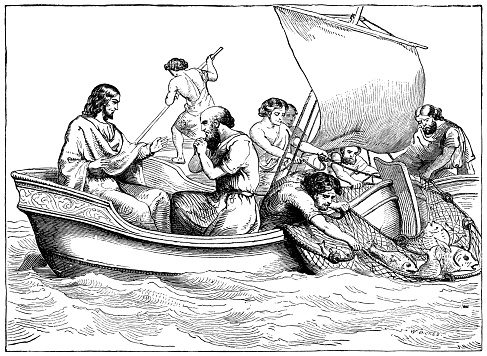Over Easter over the weekend, many will be celebrating the event by cooking fish-based dishes.
The Christian festival starts on Palm Sunday and continues throughout the Holy Week, ending in Easter Sunday, which this year falls on March 31. It commemorates the day that Jesus rose again, after dying on the cross.
While consuming Easter eggs on Sunday is possibly the most famous gastronomic part of the Bank Holiday weekend, it has a pretty fishy past, too, with lots of consuming seafood on Good Friday.
So if you’re planning to eat fish today, find out the story behind the tradition here.
Why do people eat fish on Good Friday?
Fish is traditionally eaten on Fridays by Catholics, following the doctrine set out by the Vatican.
The medieval church decreed that meat – specifically the meat of warm-blooded animals – shouldn’t be eaten on Fridays, which means some chose to eat fish instead.
Some have also pointed out that this decision had political implications, as it boosted the burgeoning European fish trade.
In the 1960s, the Pope modified the ruling somewhat, saying it could be interpreted depending on a person’s economic status – meaning eating fish on a Friday isn’t compulsory.
For other Christian denominations, eating fish on Good Friday marks the symbolism of the day in the Bible that Jesus was killed by the Romans.
Fish are symbolic for a few reasons. Firstly, in the Bible, Jesus referred to his disciples as ‘fishers of men’.
Some of Jesus’ disciples were also fishermen, so the food is referenced regularly during accounts of his life.
They were also used as a sign by early Christians to identify themselves – something that continues up to today.
When do Christians fast?
Fasting on certain days of the week is common among denominations other than Catholicism, too. It’s important to note here that fasting doesn’t necessarily meaning abstaining from all food and drinks. Some give up certain parts of their diet, or behaviours.
Eastern Orthodox and Lutheran Christians abstain from eating meat on Wednesdays, in remembrance of Judas’ betrayal of Jesus in the Easter story.
Traditionally, Christians also fast during Lent, marking the 40 days and 40 nights Jesus spent in the Judean desert. Lent ends on Easter Saturday.












